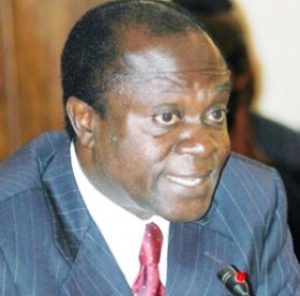Komenda factory was for political capital – Minority

The Minority in Parliament, has said that the Government has not addressed the critical challenges that could undermine the viability of the refurbished Komenda Sugar Factory.
They insisted that though the revamping of the factory would contribute to national development efforts, the challenges that resulted in the collapse of the factory still existed and needed to be dealt with for the project not to suffer a similar fate.
The Minority, who questioned the timing of the inauguration of the facility during a media encounter with the Parliamentary Press Corps in Accra, suggested that the Government was seeking to make political capital out of the project when the facility “will not be operational anytime soon.”
According to the Minority, the inauguration of the factory in an election year was a propaganda ploy to win votes, and the Government should have put in adequate measures, including the management and the supply of the needed raw materials before opening the facility.
President John Dramani Mahama last Tuesday commissioned the revived factory, expected to employ 2,000 people directly and 5,000 indirectly to improve upon the unemployment situation in the country, reduce the import bill on sugar and related supplies, and add valued to raw sugar cane.
However, Professor Gyan Baffour, the Ranking Member of the Trade & Industry Committee of Parliament, questioned the siting of the factory, explaining that it was close to the sea and most components of the facility were likely to suffer the vagaries of the weather and would thus incur huge maintenance costs.
He pointed out that the diversion of farm lands from the production of multi-crop to mono-crop sugar cane presented a possibility of food insecurity in the area, given the fact that the new factory was 25 per cent bigger that the old one.
The facility was refurbished at a cost of over $36 million.
Prof. Baffour said the cultivation of sugar cane was water dependent and queried how the crop could flourish with the heavy pollution of the two main rivers – Pra and Offin – by illegal miners.
He explained: “Sugar cane farming is a water dependent activity. The production process also requires adequate and regular supply of water. Reliance on the galamsey-polluted Pra-Offin River will challenge the survival of the factory as the mercury-poisoned waters may contaminate the end product.”
“Again, adequate irrigation of out-grower farms will determine the yield per acre, the sustenance of interest of the farmers and hence the profitability and life of the factory.”
“The primary canal to feed the farms with irrigation water from the Pra River has long collapsed. It has not yet been rehabilitated. How are the farms to be irrigated? If the yield should fall or if the world sugar price should fall, farmers would require financial protection to keep the industry working.
Prof. Baffour said the start off offer price of GH¢ 60 per tonne of sugar cane was too low to sustain the interest of farmers in the business, cautioning that the situation had happened in sugar producing countries such as Kenya.
The Minority New Patriotic Party also said the insufficient supply of cane sugar from out-grower farmers could jeopardise the capacity of the factory to engage in uninterrupted production.
It said the factory must be kept running with adequate inputs or risk being “a white elephant which will keep gulping down colossal expenditure where there is no production.”
“When the euphoria for reviving the Komenda Factory has died down, when the political blitzkrieg has abated, when the razzle-dazzle of the Komenda sugar factory has departed, Ghanaians will appreciate that it is not yet time to celebrate; it is not yet Uhuru!”
“Much, much more needs to be done. President John Dramani Mahama ought to have given serious thought to these matters before doing what he did last Tuesday. Komenda Sugar factory, whither? Prof. Baffour stated.
Source: GNA
